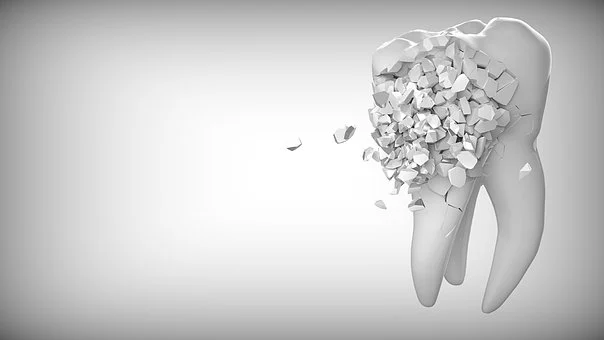Disclaimer: “All the characters and events depicted are fictitious. Any resemblance to a person living or dead is purely coincidental.”
Four years ago, Elizabeth Smith went to the Duncan’s Dental Spa and Cosmetic Centre at Winchester for a general dental check-up.
Elizabeth’s family noticed that her health was not keeping well for some time then. She did not have her food properly. There was nothing specific. She was unable to shake off minor ailments quickly. It was the primary reason Peter Smith, her husband, took Elizabeth to Dr Duncan’s dental clinic for a check-up.
Dr Tony Duncan found that she had lost some of her teeth in the upper and lower jaws. After examination and diagnostic preview, Dr Duncan decided to place five dental implants.
Peter was confident about Dr Duncan. The problem was with a tooth in the centre of his upper teeth. Dr Duncan treated him a couple of years ago. Peter had an implant fitted and had no further problems.

Elizabeth got five dental implants installed; this process was very successful. Elizabeth Smith was quite happy with her new smile! She said: “I feel and look better than I have for years!”
She was healthy, active and confident.

A few months later, 2-3 implant units tipped off Elizabeth’s mouth. She was about to swallow them during her sleep. It choked; Elizabeth was almost breathless. She rushed to the local hospital immediately. On-time attendance saved Elizabeth’s life!
Peter was surprised by this event. His dental implants were steady and doing well for many years then.
Later, Elizabeth was re-treated for her missing implants. Unfortunately, one of the implant units failed again.

Dr Duncan was quite upset with these recurrent failures. He performed a plethora of diagnostic tests and blood tests. Still, there was no clue as to the root cause of this problem. He was unable to come to a specific conclusion about this problem.
In due course of time, Dr Duncan went on a holiday to meet his niece, Samaya, in Washington D.C.
Samaya was a scientist working in the field of bone disorders. She was performing some genetic studies with a local hospital. Samaya was studying to find and compare genetic polymorphisms for the bone morphogenetic protein (BMP) gene in the local population.

Dr Tony shared the case of Elizabeth Smith’s recurrent dental implant failures. He explained to Samaya that all initial clinical and diagnostic tests were positive for taking up the dental implant treatment procedure.
He said that parameters like bone density showed promising attributes for Elizabeth Smith. Clinically, everything was fine. Dr Tony mentioned that he followed the same protocol for placing dental implants for Elizabeth as was used for her husband, Peter Smith. He said to Samaya that despite many investigations, he was unable to figure out the actual reason for failing implants in the case of Elizabeth Smith.

Samaya proposed to Dr Tony that she wished to perform a BMP gene genomic test for Peter and Elizabeth. She explained that genetic polymorphisms in this gene might be the root cause.
Dr Duncan was not aware of this aspect. He learnt from Samaya about genetic polymorphisms. Samaya explained, “Genetic polymorphism means the presence of two or more different forms of a specific DNA sequence or a gene that can occur among different individuals or populations”.

She further explained about BMP. Bone morphogenetic proteins (BMP) are a group of growth factors that help bone formation (osteogenesis) in the human body. She mentioned to Dr Duncan that it was the reason she wished to analyse Peter and Elizabeth for BMP gene polymorphisms.
Dr Duncan was not convinced by what Samaya said. Though he was skeptic, Dr Duncan wanted to try for one last time. He contacted Peter and Elizabeth; requested them to participate in the genetic test. Peter and Elizabeth were skeptic as well.

Dr Tony mentioned that Samaya needed only 2 ml of saliva samples from them. Knowing this, finally both of them agreed to participate.
Samaya sent special saliva collection tubes through post to Peter and Elizabeth. In a weeks time the samples reached her laboratory. Samaya pulled out the DNA from both the saliva samples; studied and analysed them.

As Samaya was already working in this area of BMP gene polymorphisms, she had some prior interesting data in hand.
By this time, Dr Duncan was back to Winchester.Peter and Elizabeth were eagerly awaiting the test results. She knew that BMP-4 influence marginal bone loss around implants before implant loading.
After few weeks, the report of genetic test arrived.This test was specific for finding BMP-4 genetic polymorphisms.
- Peter was found positive for the TT genotype of BMP-4. People with this genotype contributed to healthy tissue surrounding implant.
- Elizabeth was found positive for Tt genotype of BMP-4. This genetic combination was associated with causing exaggerated tissue infllammation surrounding a dental implant (peri-implantitis).
These results were eye-opening for Dr Duncan! He concluded: “Dental implant loss in some patients, like Elizabeth, cannot be explained by clinical factors; the possibility of a genetic predisposition was responsible for recurrent failures.”
Dr Duncan started looking for alternative strategies to treat Elizabeth Smith.
Peter used to laugh aloud and say to Elizabeth: “See! I have strong and good genes that protect my implants!”
-The END
A Last Note For You:
Dental implants often fail. Recurrences of these failures are common in many. Several phenomena imply the existence of genetic risk factors for implant failure. For the last two decades, quite a lot of research studies have happened in this area.
There are lot of discrepancies in results. It may be due to small sample sizes and the potential limitations of data gathered from specific geographic populations. To determine the effect of genetic polymorphisms in true sense, large sample sizes in various ethnicities would be ideal.
Currently available data appear to support the existence of genetic susceptibility behind dental implant failures, but this remains unresolved.
To detect specific susceptibility genes, a genome-wide screening or studies using genomics, transcriptomics, proteomics, and metabolomics will be useful. The results will be helpful for the identification of proper candidates for dental implants in clinical practice.
Did this story give you a newer dimension to
think? Share your thoughts in Comments
International Online Conference of Dental Genetics And Clinical Diagnostics Chapter 1.0
July 11, 2022




